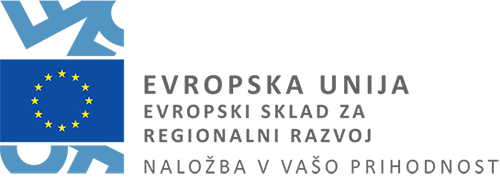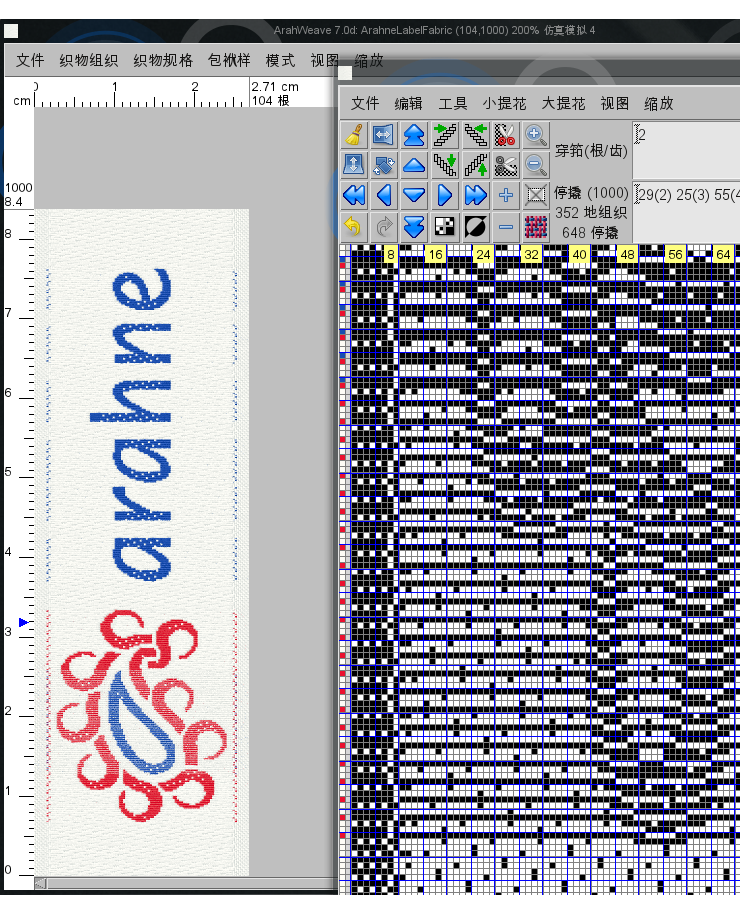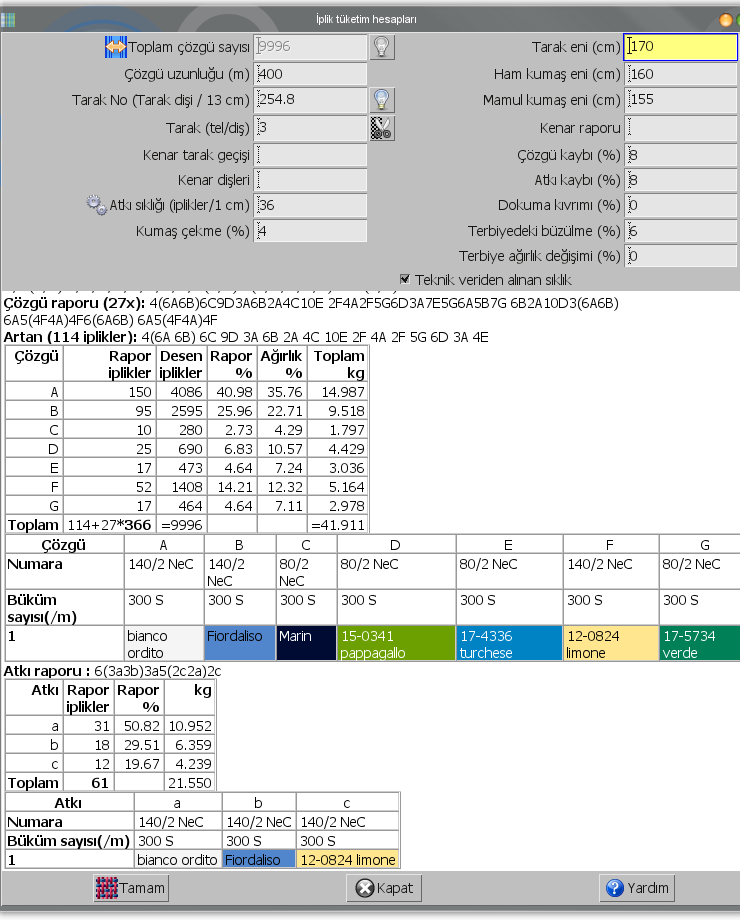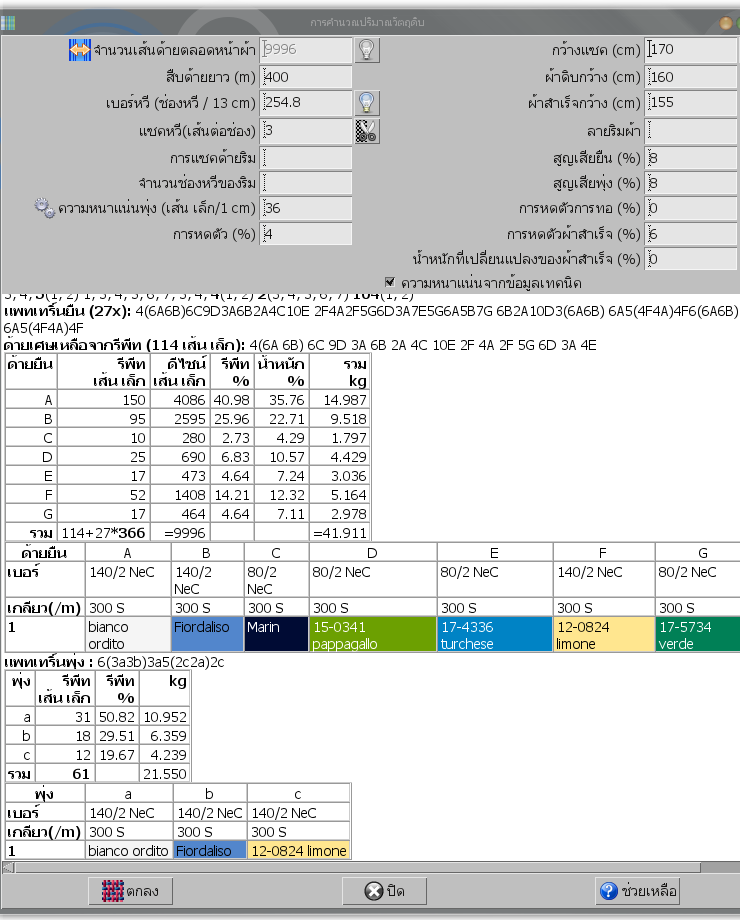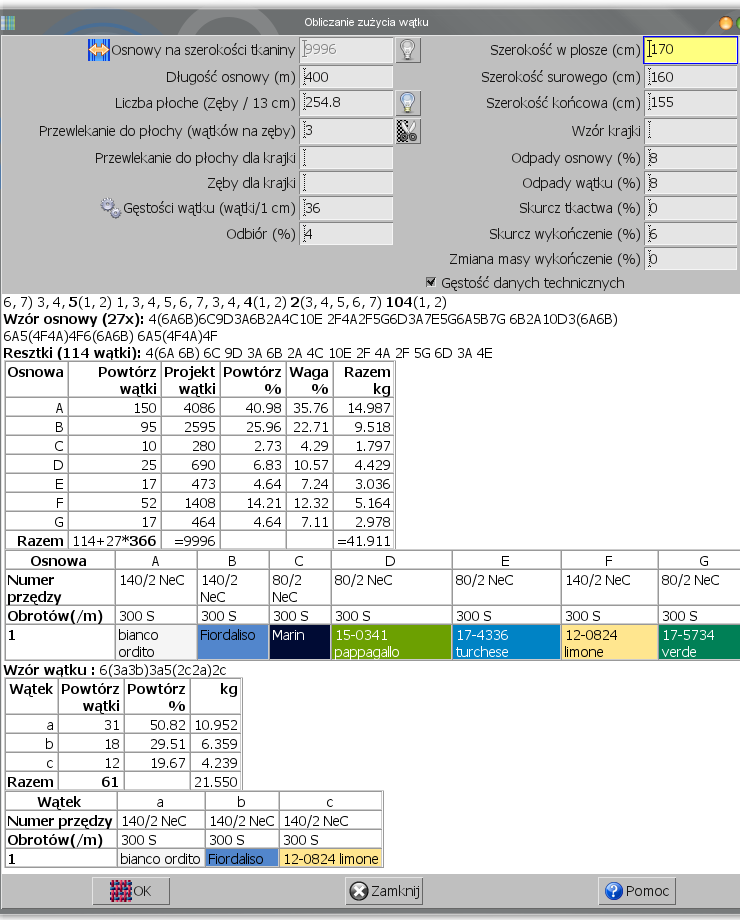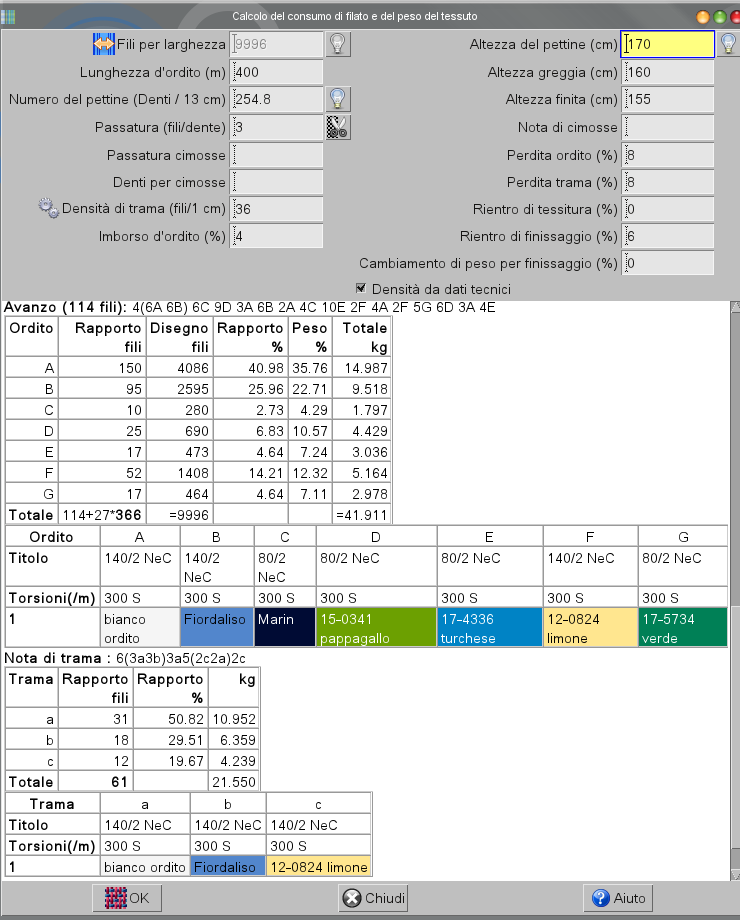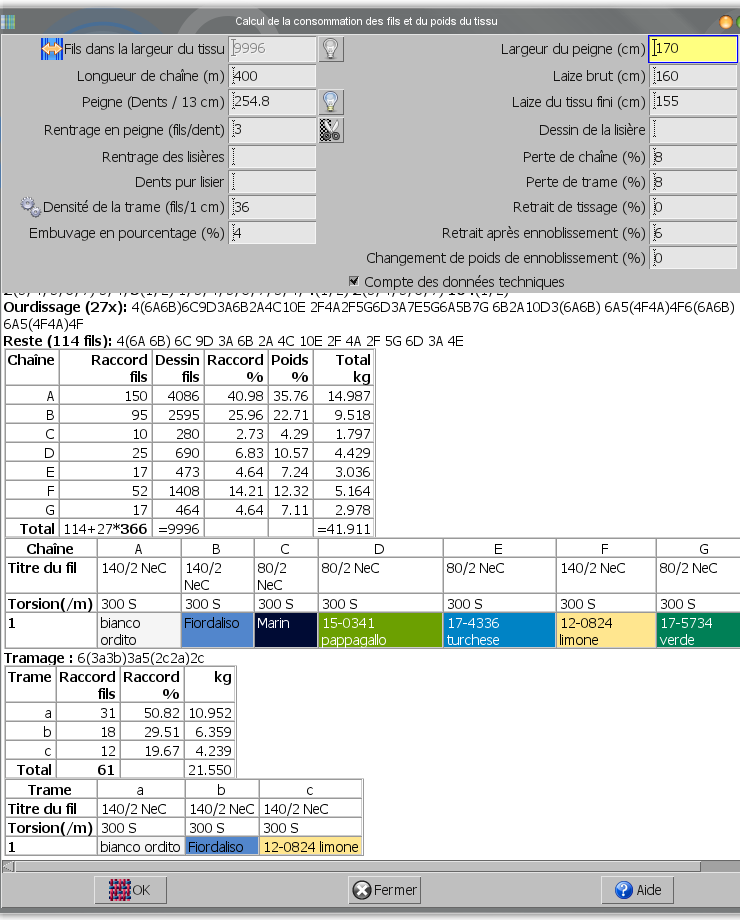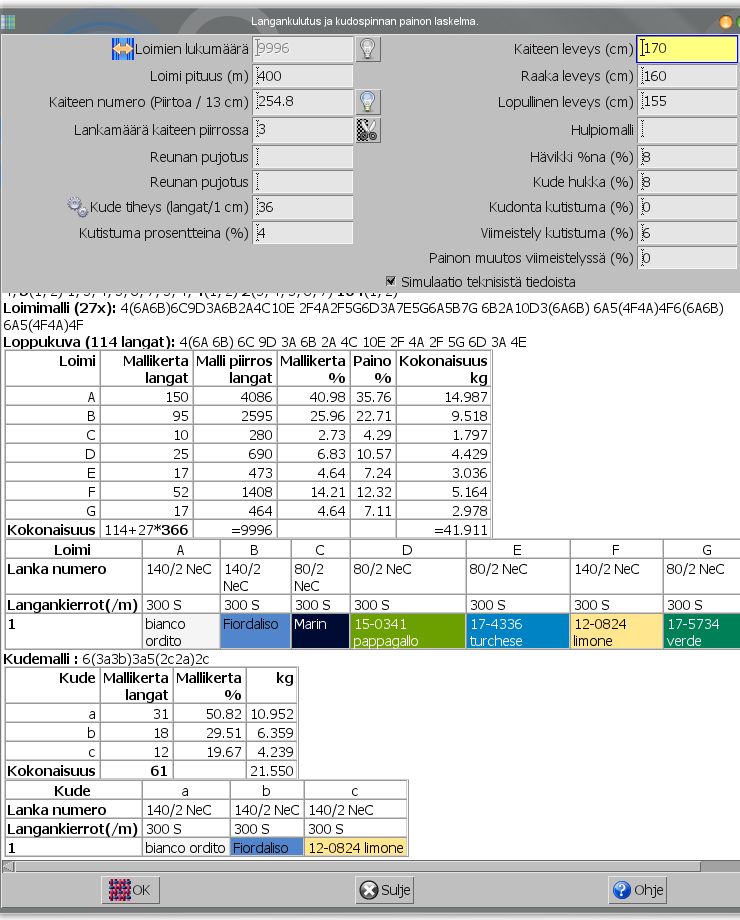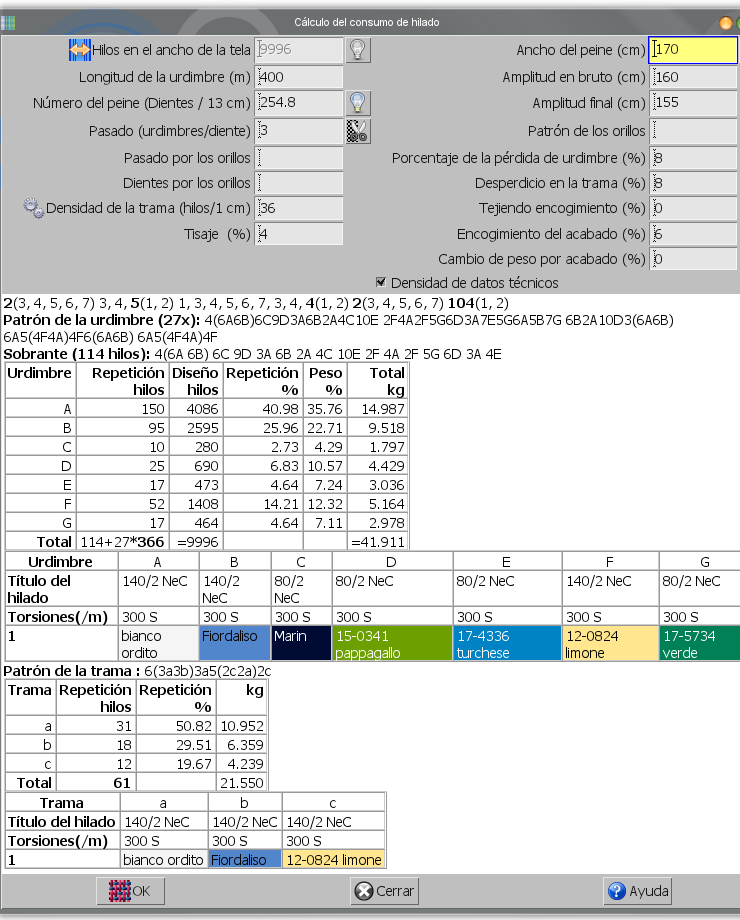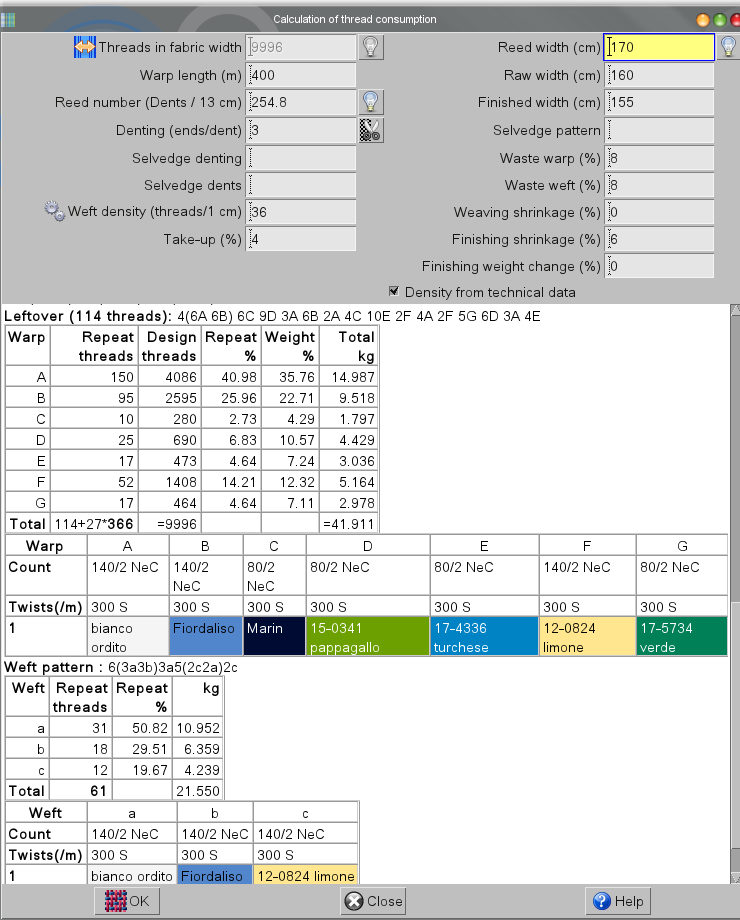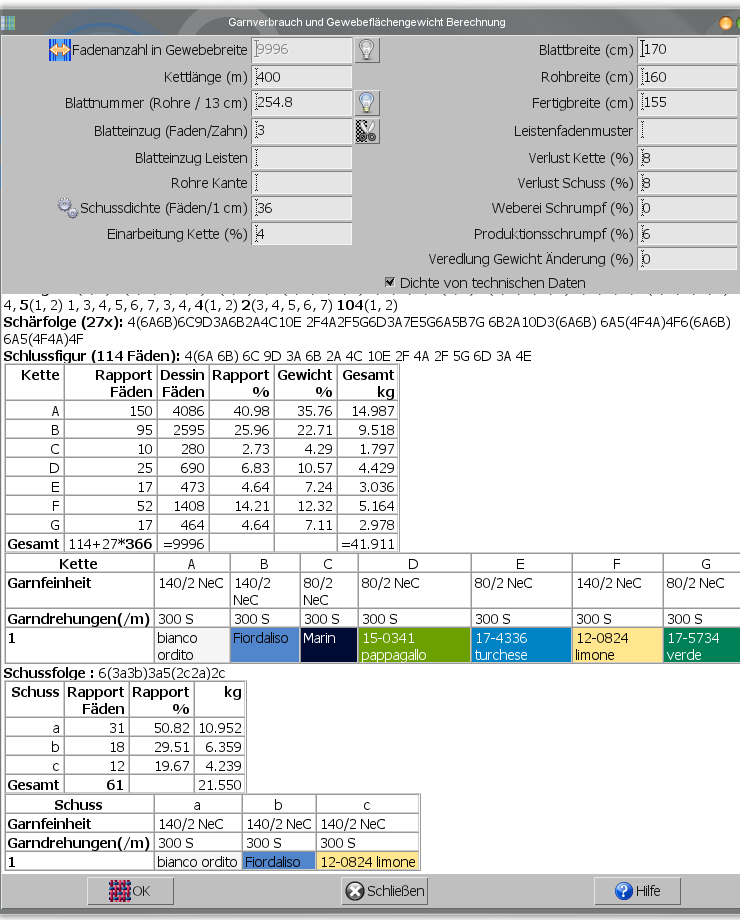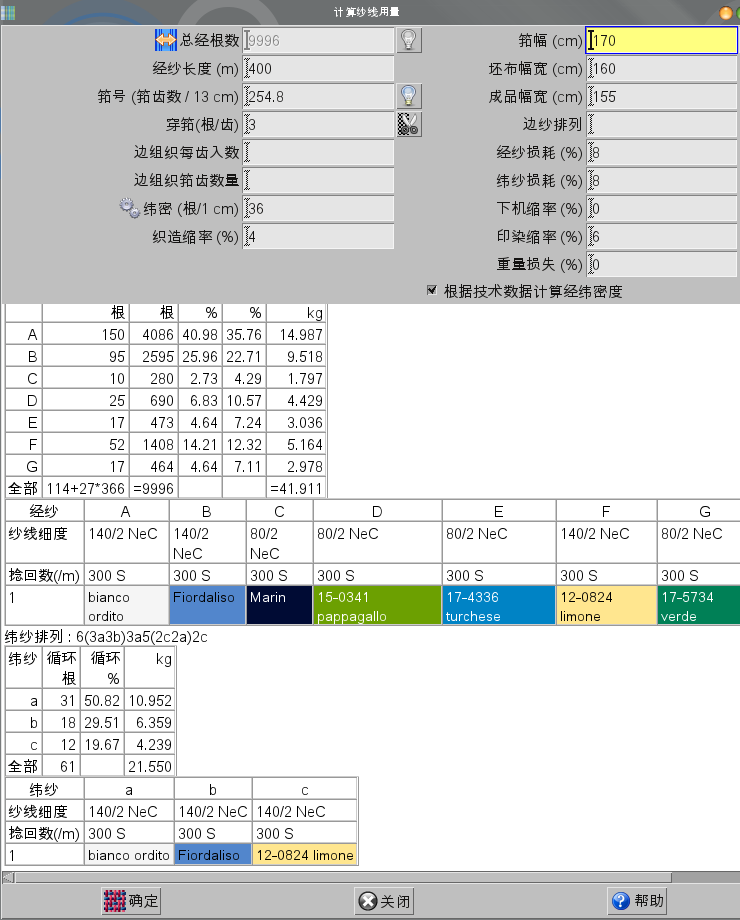
ArahWeave 7.0d is now available
You can download the latest demo from here, while users with support contract will get it by e-mail.
The major new feature is support for UTF8 text encoding in all the programs. This allows us to enter any character from € to布 or สิ่งทอ, both in text fields as in file names.Previously, we could not display all the characters in all parts of the program, so Chinese users had to view HTML fabric technical calculations in English. Previous version of the program was already translated to 14 languages, but it did not allow use of national characters. It was only showing the translated text labels.
New version brings hundreds of improvements and bug fixes.
– You can use drag and drop file to directory in fabric, weave or image browser.
– ArahPaint5 supports standard cut&paste from the operating system, so you can quickly copy from the web or paste into e-mail or your documents.
– In printing fabric simulation, you can specify first warp and weave in numeric way.
– ArahWeave can now both read and write to USB memory keys formatted for floppy emulator.
– 3D fabric view on object (shirt, cushion, bow-tie, sofa, curtain) can now be called directly from ArahWeave.
– You can change default image file format from PNG to TIFF, if you like.
– Reading of Staubli JC4 cards allows manual choice of 1344, 1536 or 3071 hooks mapping.
– Most functions available by middle mouse button now also work with Shift + left mouse button, to make them easily available to our Mac OS X users.
– On Mac OS X version, shortcuts for Cut & Paste are not Ctrl+X, Ctrl+V, but ⌘+X, ⌘+V.
– Improved terry support in Dornier AMV, Dornier DoWeave and Smit Textil G6300 dobby formats.
– Reading/writing of Nissan and Somet .ARM dobby formats.
– Reading of Takemura .CGS format.
– Loom layout can be saved in the fabric, for users who use complex loom layouts, and single fabric can only be produced on one loom.
– Program can now calculate optimal number of CPU cores for faster simulation.
– In zoom out, program can display total number of threads and actual fabric size in cm or inches on the ruler.
– All programs are smaller, use less memory, and create smaller files.
